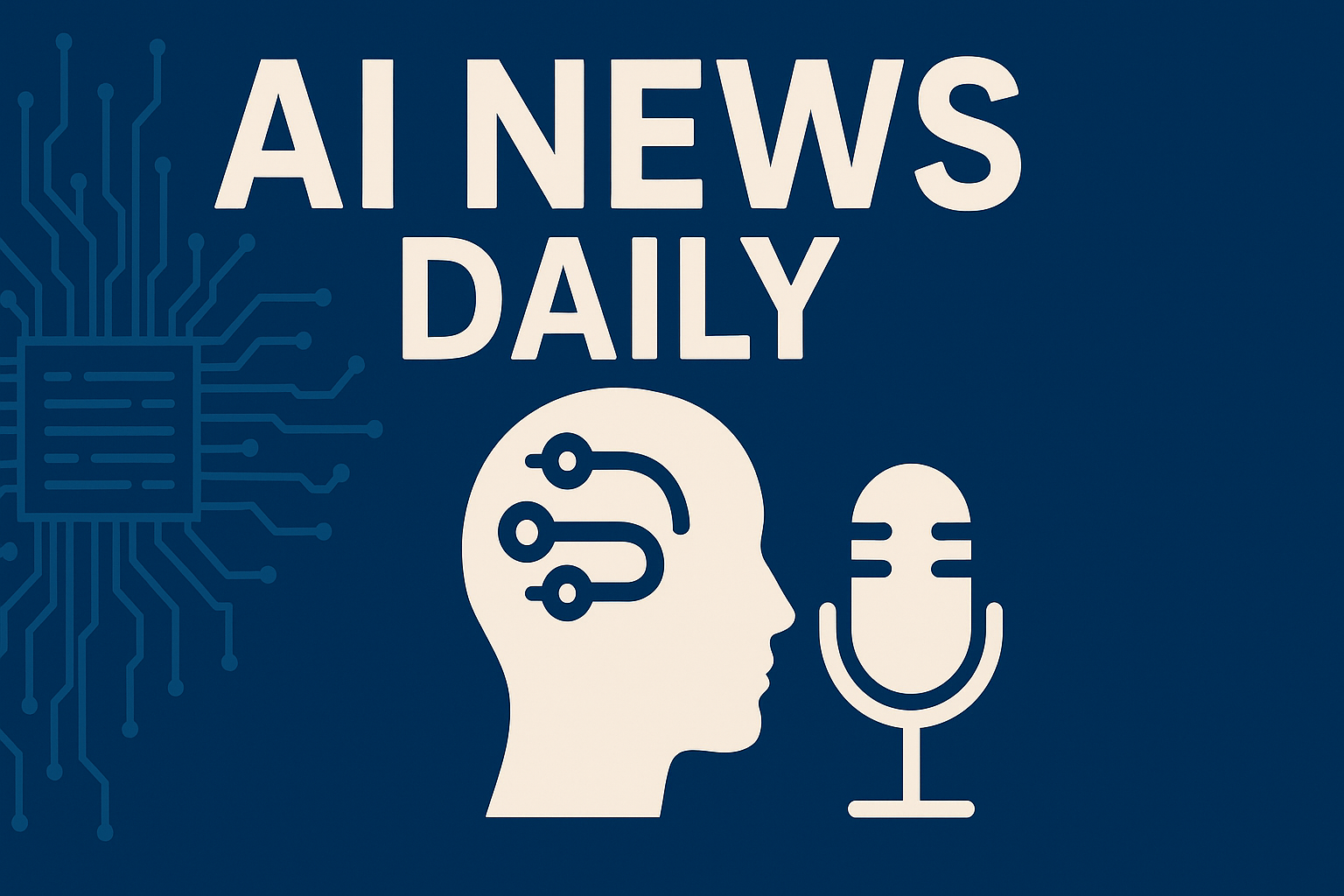Title: AI Industry Sees Major Model Upgrades, New Privacy Controls, Big Funding, and Heightened Scrutiny
Content: OpenAI launched GPT-5 with expert-level skills and deeper personalization, drawing mixed reviews as some users laud accuracy while others miss GPT-4’s personality. OpenAI has since eased usage limits, added speed vs. deep-reasoning modes, and promised a “warmer” tone, underscoring its push for customization after raising $8.3 billion.
Rival model activity accelerated: Anthropic expanded Claude Sonnet 4’s context window to 1 million tokens for complex enterprise tasks, and NVIDIA unveiled a robotics AI suite—Cosmos Reason and Transfer-2—integrated with Omniverse and new hardware for realistic, high-fidelity simulation and development.
Google rolled out automatic, opt-out Memory and “Temporary Chats” to Gemini for more personalized yet privacy-conscious conversations, and plans to open its Deep Research tool via API. It also introduced “How was this made” labels in Google Photos to flag AI-edited images, deployed new ad-fraud models that cut invalid traffic by 40%, and broadened beta access to AI-driven Flight Deals in the U.S., Canada, and India amid antitrust scrutiny of its travel dominance. In the enterprise, Oracle will integrate Google’s Gemini models into Oracle Cloud to bring advanced AI to customer data and productivity workflows.
Investment and hardware momentum continued across the sector. The U.S. National Science Foundation and NVIDIA committed $150 million to the OMAI project to build open-source AI tools and train an AI-ready workforce in fields like materials science and biomedicine. Former OpenAI researcher Leopold Aschenbrenner’s hedge fund, Situational Awareness, amassed $1.5 billion and posted a 47% early-2025 return while backing AI infrastructure. A Hugging Face scientist is raising $40 million for a robotics startup, and Vibecode secured $9.4 million to expand its no-code iPhone app builder. In health tech, Estonian firm Better Medicine raised $7 million for CE-certified kidney cancer diagnostics and is seeking FDA clearance to help alleviate radiology shortages.
Consumer devices are leaning into on-device AI and privacy. HTC launched the lightweight VIVE Eagle smart glasses in Taiwan with real-time translation, voice control, and built-in GPT and Gemini support, while Deutsche Telekom introduced an affordable, app-less smartphone driven by a Perplexity-powered assistant.
Government and defense interest is growing: the U.S. Air Force is soliciting AI-powered wargaming platforms to deliver adaptive, high-stress training and bolster readiness.
Ethical and safety questions sharpened. Studies found leading AI systems rate Black women’s hairstyles as less intelligent or competent than white hairstyles and that generative tools produce “Australiana” imagery rife with white-centric stereotypes and harmful Indigenous tropes—evidence fueling calls for inclusive design and stronger oversight. In healthcare, research shows doctors’ detection skills can fall below baseline when AI assistance is removed after sustained use, raising concerns about long-term deskilling even as AI boosts detection rates during use. Education faces fresh integrity challenges after Perplexity’s AI reportedly aced a 100-question certification exam in 13 minutes, prompting calls for new assessment guidelines.
Security firms warn attackers are using generative AI to craft convincing phishing and to plant malicious prompts that target AI assistants, pushing businesses toward AI-aware defenses. Hashlock released a free AI tool to scan smart contracts for vulnerabilities—useful for triage but not a substitute for professional audits. Authorities in Nepal warned of the fraudulent “Nepse AI” trading app that compromises devices and bank accounts.
Neurotechnology competition intensified as OpenAI’s Sam Altman launched Merge Labs to develop scalable, less invasive brain–computer interfaces, directly challenging Elon Musk’s Neuralink. In a related shift, xAI co-founder Igor Babuschkin departed to start an AI safety–focused venture backing projects aimed at societal benefit.
Productivity tools and research offered nuance: MIT’s Fundamental Research Labs released Shortcut, an AI agent that completes complex Excel and finance tasks via natural language up to ten times faster than humans, while EEG studies suggest interacting with large language models can boost creativity and analytical thinking, indicating AI’s potential to reshape cognitive workflows alongside its risks.
